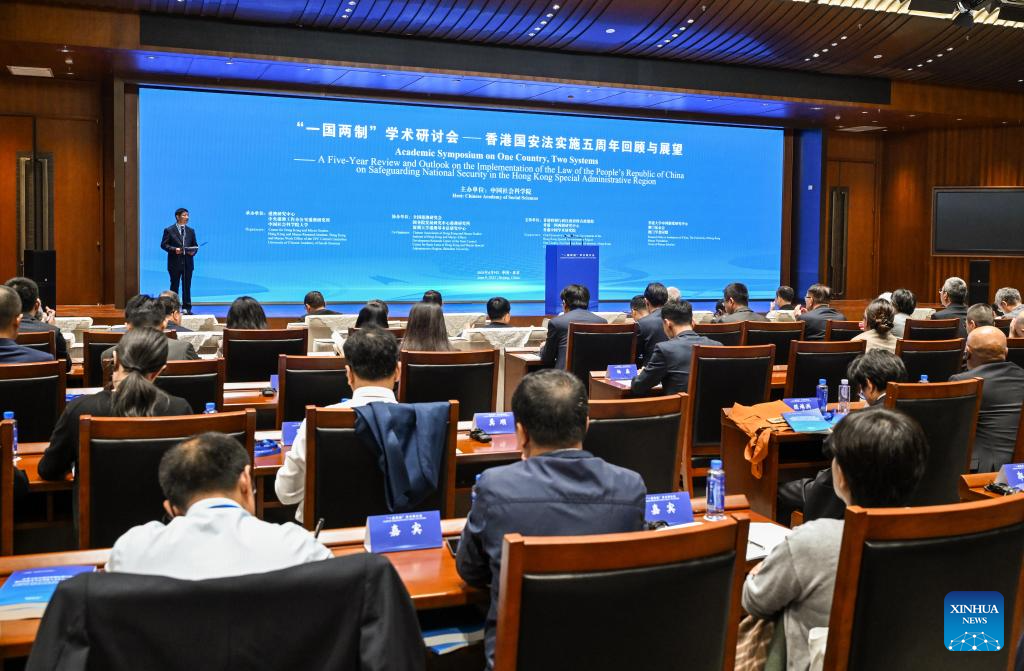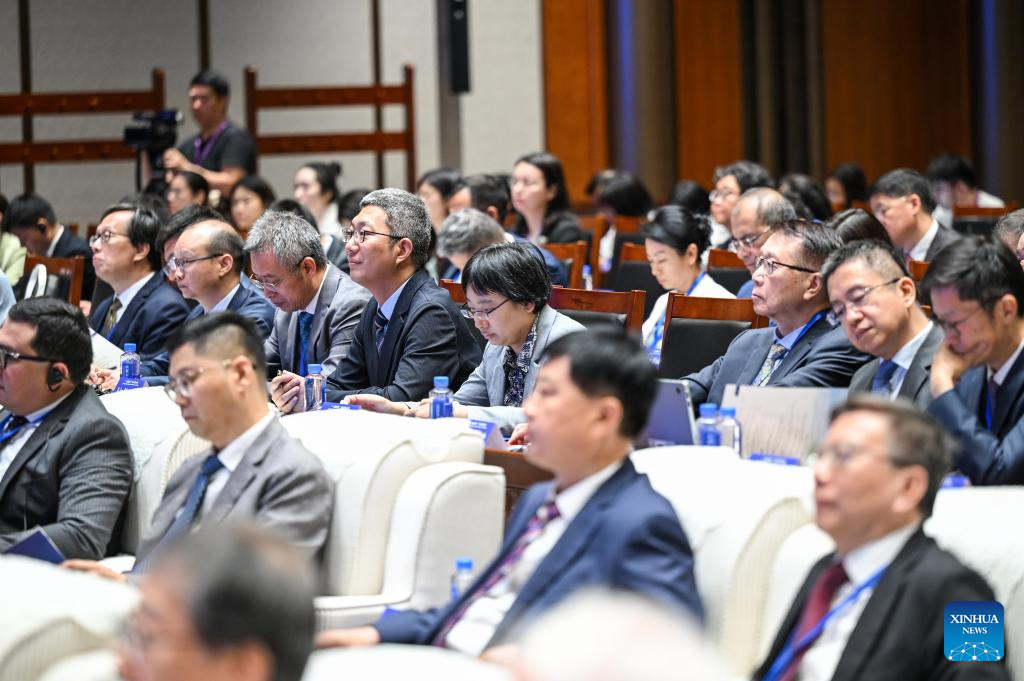
Participants at an academic symposium in Beijing have hailed the Hong Kong national security law as a model of upholding the "one country, two systems" policy and a guarantee of the city's long-term prosperity and stability, five years after its enactment.
Hosted by the Chinese Academy of Social Sciences on Monday, the event brought together nearly 100 guests from the Chinese mainland, Hong Kong, Macao and 11 other countries, including Britain and Portugal.
ALSO READ: Police chief: HK strives to strengthen national security defense
"Over the past five years, we have witnessed a vibrant Hong Kong. Far from weakening its unique status and strengths, the national security law has consolidated and elevated them," said Zhang Haixing, director of the Hong Kong and Macao research institute under the Hong Kong and Macao Work Office of the Communist Party of China Central Committee.
He emphasized that the law, which took effect in June 2020, had closed national security loopholes in Hong Kong, put in place a "safety device" to the practice of "one country, two systems" in Hong Kong, and made its operation smoother and steadier.
READ MORE: Foreign politicians urged to stop interfering in Hong Kong affairs
Having lived in Hong Kong for nearly 50 years, British barrister Grenville Cross, previously director of public prosecutions of the Hong Kong Special Administrative Region (HKSAR), recalled that in 2019 black-clad mobs had brought mayhem to the streets, destroying public facilities, attacking banks and private businesses, firebombing police and their families, and attacking just about anybody who had objected to their destructive actions.
"The enactment of the national security law saved the day, and Hong Kong's various institutions have all since played their part in getting things back on track," Cross said.

He noted that in the implementation of this law, Hong Kong courts have always respected the rights of criminal suspects. "Indeed, it is no exaggeration to say that the national security law is human rights heavy."
This law's implementation exemplifies how common law jurisdictions can balance national security with individual freedom, said Prof. Han Dayuan, from the Renmin University of China and member of the Hong Kong SAR Basic Law Committee of the National People's Congress Standing Committee.
READ MORE: Experts: National Security Law safeguards stability
"Five years ago, there were media reports worrying about the law's impact on Hong Kong's business environment. Today's economic statistics in Hong Kong prove that it hasn't harmed business but has fueled growth," said Kan Wai-mun, a member of Hong Kong's seventh-term Legislative Council.
Kan highlighted the fact that in 2024 Hong Kong was ranked as the world's freest economy and had risen to third place in the Global Financial Centers Index. Kan also cited figures showing that 9,960 overseas and mainland companies operated in Hong Kong in 2024, hitting the record high, while the number of startups there surged by 40 percent since 2020, reaching nearly 4,700 in 2024.
READ MORE: Jailed subversive Joshua Wong faces new national security charge
Ong Tee Keat, founding chairman of Centre for New Inclusive Asia based in Malaysia, told the event that it is precisely the dividend of stability resulting from this legislation that Hong Kong has leveraged to woo investors from around the world.
The success of striking the right balance between national security and social governance in Hong Kong without hurting its economic competitiveness is a clear manifestation of maturity, confidence and astuteness of governance under the framework of "one country, two systems," he said.
It's time for some Western countries to stop their interfering in the domestic statecraft of other nation states and refrain from long-arm jurisdiction, as it is not their birthright to impose their whims and fancies on others in this emerging multipolar world, he said.


